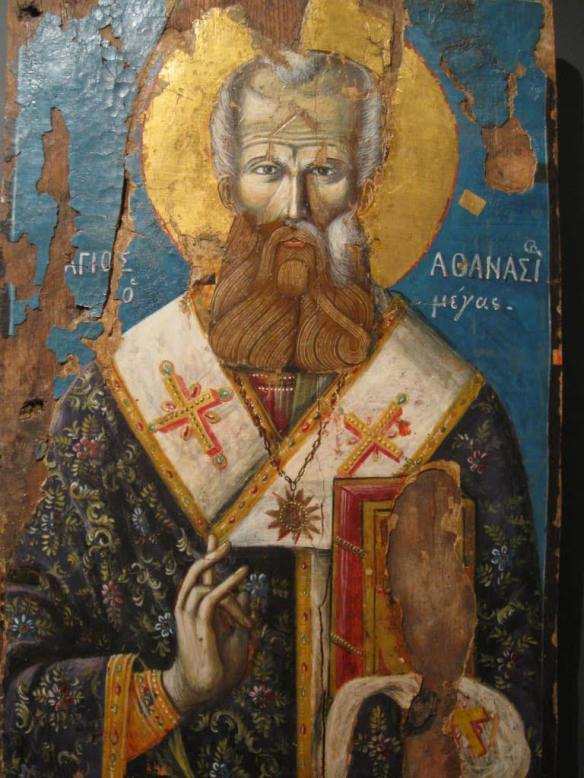Torrance is discussing the impact that dualistic Hellenism has had upon Western-thought-forms; namely the precedence that classical thought has given to the optical mode of thinking and verification (so the obsession with empiricism, etc.). TFT is highlighting the impact that this methodology and epistemology can have upon our construal of God’s “Father-hood” and “Son-hood,” and how Christian/Patristic theology, primarily through Athanasius’ influence, eschewed this “Hellenizing” effect by reifying it through Christian ontology.
The contrast between Christianity and Hellenism could hardly be greater than at this fundamental level, where biblical patterns of thought governed by the Word of God and the obedient hearing of faith (υπακοη της πιτεως) conflict sharply with those of Greek religion and philosophy. The issue came to its head in the Arian controversy over the Father – Son relation at the heart of the Christian Gospel. Are the terms ‘father’ and ‘son’ to be understood as visual, sensual images taken from our human relations and then projected mythologically into God? In that event how can we avoid projecting creaturely gender into God, and thinking of him as grandfather as well as father, for the only kind of father we know is one who is son of another father? To think of God like that, in terms of the creaturely content of images projected out of ourselves, inevitably gives rise to anthropomorphic and polymorphic notions of deity and in fact to polytheism and idolatry. However, if we think from a centre in God as he reveals himself to us through his Word incarnate in Jesus Christ, then we know him as Father in himself in an utterly unique and incomparable way which then becomes the controlling standard by reference to which all notions of creaturely fatherhood and sonship are to be understood. ‘God does not make man his pattern, but rather, since God alone is properly and truly Father, we men are called fathers of our own children, for of him every fatherhood in heaven and earth is named.’ Unique Fatherhood and unique Sonship in God mutually define one another in an absolute and singular way. As Athanasius pithily expressed it in rejection of Arian anthropocentric mythologising: ‘Just as we cannot ascribe a father to the Father, so we cannot ascribe a brother to the Son’.[1]
[1] T. F. Torrance, The Trinitarian Faith, 69-70.


We’ve got to respect that Athanasius!
LikeLiked by 1 person
Yessir 😉
LikeLike